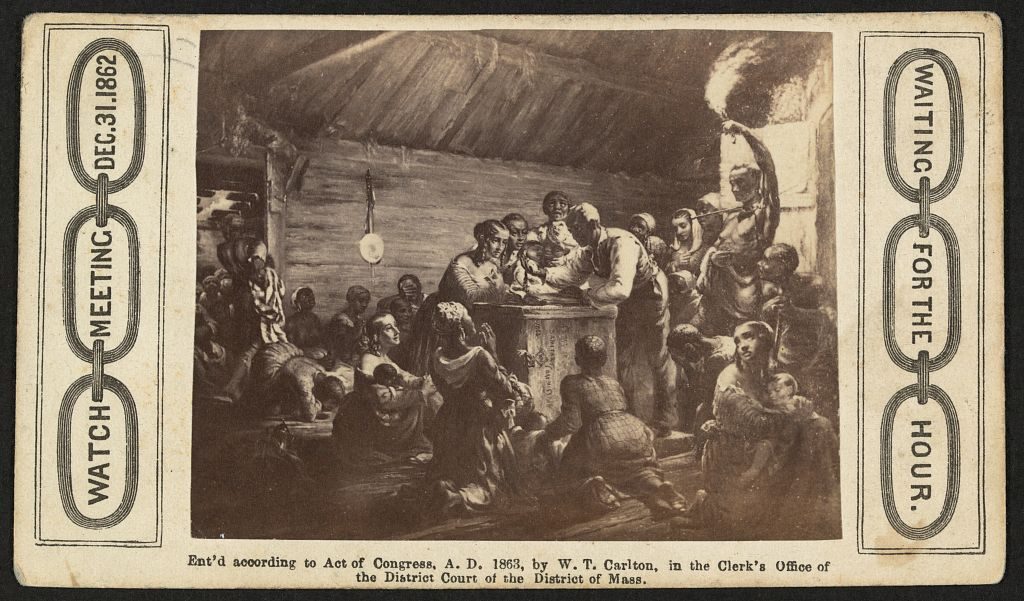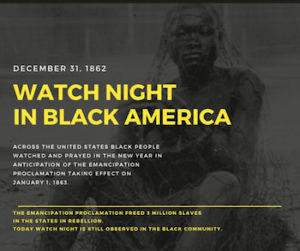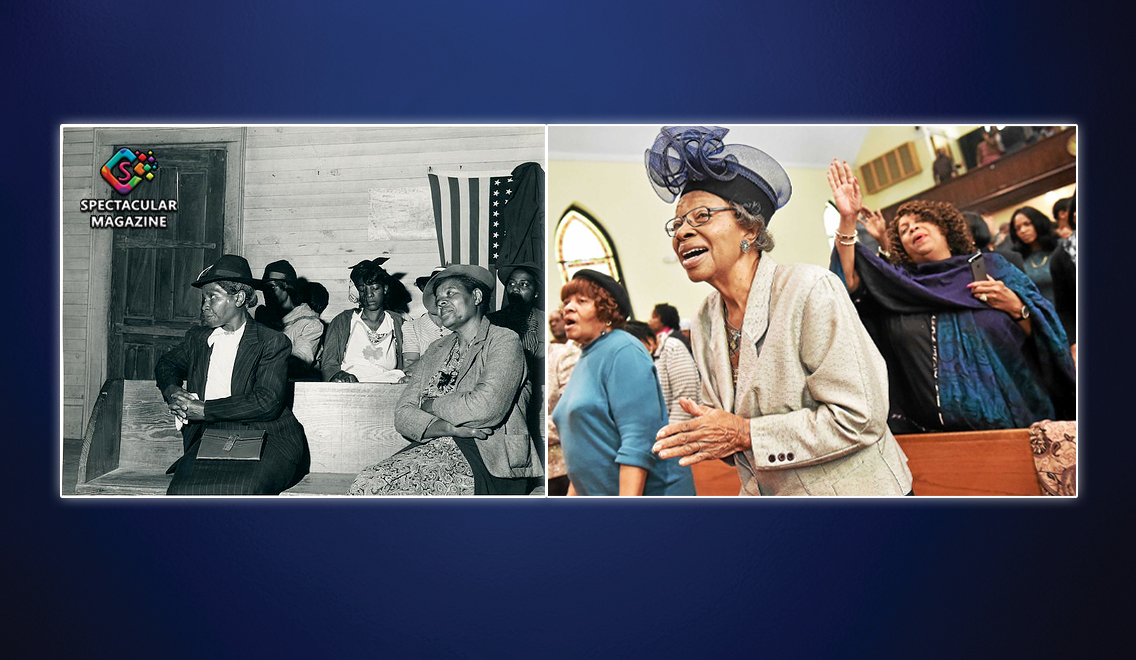[Celebrating Juneteenth] 1st Black Church Watch Night Service: Freedom’s Eve Still Observed
This is the third of our six-part series ‘Celebrating Juneteenth’ – June 19th is Juneteenth, the oldest known celebration commemorating the ending of slavery in the United States. It is also known as African American Independence Day. Unfortunately, due to the pandemic, the Annual NC Juneteenth Celebration will be not be held in 2020 but will return on June 19, 2021, from 1 pm – 10 pm in downtown Durham. The Celebration is always free and open to the public.
The Watch Night service on New Year’s Eve can be traced back to gatherings also known as “Freedom’s Eve.” On Dec. 31, 1862, during the Civil War, free and freed blacks living in the Union States gathered at churches and/or other safe spaces, while thousands of their enslaved black sisters and brothers stood, knelt and prayed on plantations and other slaveholding sites in America — awaiting news that the Emancipation Proclamation actually had become law. Lincoln had used the occasion of the Union victory at Antietam to issue a preliminary Emancipation Proclamation, which freed all slaves in the rebellious states after January 1, 1863.

He justified his decision as a wartime measure and did not go so far as to free the slaves in the border states loyal to the Union. At the stroke of midnight, all slaves in the Confederate States were declared legally free. When the news was received, there were prayers, shouts, and songs of joy as many people fell to their knees and thanked God. Still, the Emancipation Proclamation deprived the Confederacy of the bulk of its labor forces and put international public opinion strongly on the Union side. Some 186,000 black soldiers would join the Union Army by the time the war ended in 1865, and 38,000 lost their lives.
 Blacks have gathered in churches annually on New Year’s Eve ever since, praising God for bringing us safely through another year. It’s been over a century since the first Freedom’s Eve and tradition still brings us together at this time every year to celebrate “how we got over.” This celebration takes many African American descendants of slaves into a new year with praise and worship. The service usually begins anywhere from 7 pm to 10 pm and ends at midnight with the entrance of the New Year. Some people come to church first, before going out to celebrate, for others, the church is the only New Year’s Eve event.
Blacks have gathered in churches annually on New Year’s Eve ever since, praising God for bringing us safely through another year. It’s been over a century since the first Freedom’s Eve and tradition still brings us together at this time every year to celebrate “how we got over.” This celebration takes many African American descendants of slaves into a new year with praise and worship. The service usually begins anywhere from 7 pm to 10 pm and ends at midnight with the entrance of the New Year. Some people come to church first, before going out to celebrate, for others, the church is the only New Year’s Eve event.
There have been instances where clergy in mainline denominations questioned the propriety of linking religious services with a secular holiday like New Year’s Eve. However, there is a reason for the importance of New Year’s Eve services in the Black experience in America.
Two and a half years after the first “Freedom’s Eve” service, the first Juneteenth Celebration was held in Texas after to word that slavery had ended reached the formerly enslaved people on June 19, 1865.


